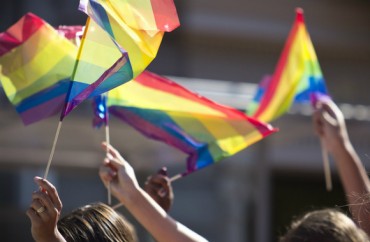
Last Friday, twenty-five LGBTQ advocacy groups sent a letter to the Common Application requesting it add “optional questions about gender identity and sexual orientation.”
The Common Application is the popular online college form that is accepted by over 400 colleges and universities.
The C.A. had rejected a similar request back in 2011, but noted “it might review the concept ‘later this decade,’ based, among other things, on ‘evolving cultural norms.'”
The letter cites several reasons. “More and more LGBTQ students are living openly when they apply to college and want to be able to self-identify — just as they do with their race, ethnicity, and religion. The questions that we are proposing on gender identity and sexual orientation would be optional, so that LGBTQ students who are not living openly or not comfortable disclosing do not have to do so,” the letter says.
Further, the letter states that “a growing number of colleges and universities are seeking to track data related to openly LGBTQ students applying, being accepted, and enrolling in their institutions. The lack of questions on LGBTQ identity on the Common Application makes obtaining this data more difficult, which hinders the ability to address their academic retention and success.”
The letter says that this tracking is needed because “LGBTQ youth, specifically LGBQ youth of color and transgender youth of all races, experience multiple oppressions and are much more likely than other students to struggle academically and personally in college. In order to positively impact their college experience, institutions must have the ability to identify these students.”
Part of the C.A.’s reason for the 2011 rejection was a concern that “any potential benefits to adding the question would be outweighed by the anxiety and uncertainty students may experience when deciding if and how they should answer it.”
In addition, “some admissions deans at the time of the 2011 discussion” indicated that the varying types of institutions which accept the Common Application complicated the issue: Some have large and active LGBTQ organizations, while others are religious … and may hold beliefs “not supportive” of gay people.
Like The College Fix on Facebook / Follow us on Twitter
IMAGE: thisisbossi/Flickr






Please join the conversation about our stories on Facebook, Twitter, Instagram, Reddit, MeWe, Rumble, Gab, Minds and Gettr.